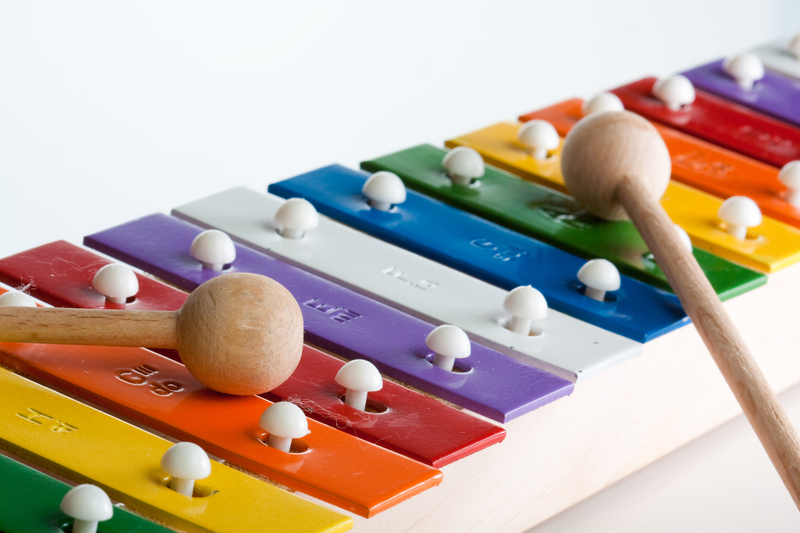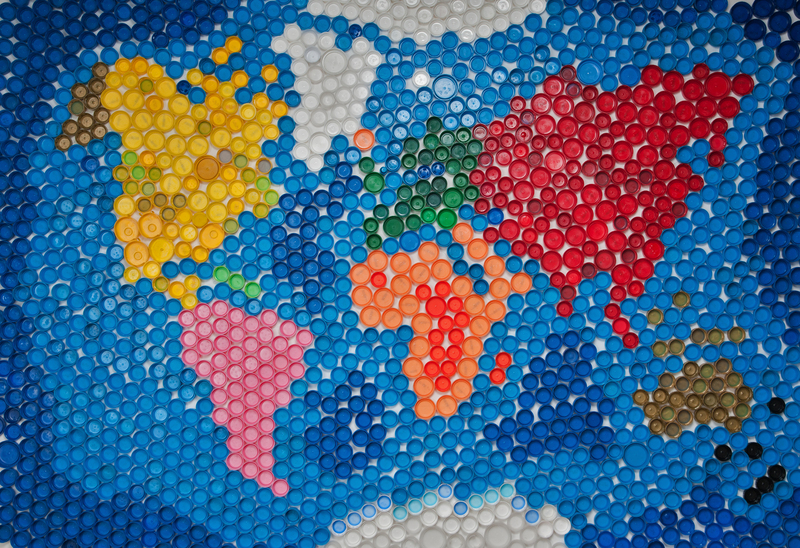Cultivating Green Habits: Teaching Kids to Recycle
In a world where environmental concerns are on the rise, instilling green habits in children--especially the practice of recycling--has become more important than ever. Teaching kids to recycle not only nurtures a sense of responsibility toward nature but also equips the next generation with sustainable life skills. This comprehensive guide explores creative ways parents, teachers, and mentors can foster environmental awareness and encourage recycling habits in children.
Why Early Recycling Education Matters
Introducing recycling concepts at an early age helps children develop a lifelong respect for the environment. When kids learn to recycle, they begin to appreciate how their actions impact the planet. Cultivating these eco-friendly practices early ensures they become second nature as children grow.
- Long-term Impact: Habits formed in childhood tend to carry into adulthood, making early education crucial for creating environmentally conscious citizens.
- Building Awareness: By teaching children about waste reduction and plastic pollution, we help them understand urgent global issues.
- Empowering Young Minds: Recycling gives children a tangible way to make a difference, boosting their confidence and sense of agency.

How to Explain Recycling to Children
Breaking down the concept of recycling for kids requires simplicity, clarity, and hands-on involvement. Use everyday examples and encourage questions to help children grasp why recycling is important. Here's how to make the lesson stick:
Use Kid-Friendly Language
- Define recycling simply: "Recycling means turning old things into new things instead of throwing them away."
- Use pictures, stories, or cartoons to illustrate how trash can hurt animals and plants or how it can become something useful again.
Demonstrate with Real-Life Examples
- Sort items from your daily trash together--show what goes in each bin and explain why.
- Take a field trip to a local recycling center or watch videos about the recycling process.
Make It Tangible and Interactive
- Let kids touch and handle recyclables (like cans and paper) and help them decide what to do with each item.
- Create simple recycling chants or songs to make the process engaging.
Creative Activities to Teach Children to Recycle
Children learn best through hands-on activities and play. Incorporating fun projects into your teaching makes recycling memorable and meaningful.
1. Sorting Games
- Set up bins labeled "Plastic," "Paper," "Metal," and "Trash."
- Provide a basket of assorted waste items and turn sorting into a race or team challenge.
2. DIY Recycling Crafts
- Encourage kids to collect recyclable items (like bottle caps, cartons, or newspaper) and use them for art projects.
- Host a "Trash-to-Treasure" competition, where kids transform waste materials into toys or creative sculptures.
3. Read Books and Watch Shows about Recycling
- Choose age-appropriate books that tell recycling stories with relatable characters or simple facts.
- Watch educational videos that explain the recycling process or follow the journey of plastic from bin to new product.
4. "Green Scouts" Challenge
- Create a recycling checklist--every recycled item earns a "green star."
- Offer eco-friendly rewards (such as seed packets) for reaching milestones.
5. Outdoor Clean-Up Activities
- Organize family or community litter pick-up days where children can collect recyclables from parks or playgrounds.
- Discuss how picking up trash keeps animals safe and parks clean.
Integrating Recycling Habits into Everyday Family Life
True learning happens when recycling habits are woven into daily routines. Here are ways to make green living a natural part of your family's culture:
- Set up Visible Recycling Stations: Place recycling bins in the kitchen, bathroom, and kids' rooms, making it easy and accessible for children to use them.
- Model Green Behavior: Let your kids see you rinsing out containers, separating waste, and discussing why recycling matters.
- Shop Smart: Involve children in choosing products with recyclable packaging or buying in bulk to reduce waste.
- Composting: Teach children that not all waste must end up in the trash. Show them how fruits, vegetables, and coffee grounds can be composted to feed garden plants.
- Reuse Items: Before recycling, encourage creative reuse--turn glass jars into storage, cut old t-shirts into cleaning rags, or repurpose gift bags and wrapping paper.
Using Technology to Support Eco-Friendly Habits
Technology offers inventive ways to make learning about recycling engaging for tech-savvy kids. Here's how to use digital tools for environmental education:
- Recycling Apps: Use family-friendly apps that help kids identify recyclable items, track their progress, and earn virtual rewards.
- Online Games and Quizzes: Use interactive platforms like quizzes and recycling-themed games to reinforce lessons.
- Virtual Tours: Watch online documentaries or take virtual tours of recycling plants around the world.
Addressing Common Challenges in Teaching Kids to Recycle
While most children are naturally curious and eager to help, there are common obstacles parents and educators might face in nurturing recycling habits:
Overcoming Confusion about What Can Be Recycled
- Color-code bins and post pictures of recyclable items for reference.
- Review what's accepted in your local area and do "bin checks" together.
Handling Boredom and Lack of Interest
- Rotate activities to keep things fresh--alternate between crafts, games, and stories.
- Let children choose how to participate; give them ownership over the process.
Encouraging Reluctant Recyclers
- Avoid scolding; instead, use positive reinforcement. Praise effort and celebrate progress.
- Invite kids to teach others (siblings, friends) about recycling--it boosts their confidence.
The Benefits of Raising Kids Who Recycle
The long-term payoff of teaching children to recycle goes beyond cleaner streets and less landfill waste. Here are some of the benefits of fostering this essential habit:
- Environmental Stewardship: Kids understand the impact of their actions on the planet and feel motivated to protect it.
- Critical Thinking and Problem Solving: Sorting waste, deciding what to recycle, and coming up with creative reuse ideas foster analytical skills.
- Sense of Responsibility: Following through on recycling routines helps children develop discipline and reliability.
- Community Engagement: Participating in local clean-up events or recycling drives builds teamwork and a sense of belonging.
Expanding Beyond Recycling: Embracing All Green Practices
While teaching children to recycle is a solid foundation, it's equally important to introduce broader eco-friendly habits. Combine recycling education with other impactful practices, such as:
- Reducing: Teach kids to limit single-use plastics and unnecessary packaging.
- Reusing: Encourage second-hand shopping and repairing items instead of discarding them.
- Repurposing: Get creative by turning containers into planters or organizers and donating outgrown clothes and toys.
- Conserving Resources: Show how turning off lights, conserving water, and biking rather than driving helps reduce environmental footprints.
By connecting these green practices with recycling, you nurture well-rounded environmental citizens ready to lead the way to a cleaner, more sustainable future.
Simple Steps to Start Recycling with Your Kids Today
If you're inspired to help your children build recycling habits, here are easy ways to get started right away:
- Talk about recycling together: Initiate a conversation at the dinner table about what you recycle and why.
- Make it a family challenge: Set monthly goals for recycling, reducing waste, or collecting trash from the neighborhood.
- Track your progress: Use a chart or app so kids can see the impact of their efforts.
- Visit your local recycling center: Seeing the process firsthand makes the lessons more real and motivating.
- Join green community events: Attend tree-planting days, recycling workshops, or eco-fairs together.

Frequently Asked Questions: Teaching Kids Recycling
At what age should I start teaching my child to recycle?
You can introduce recycling habits as soon as your child can walk and help with simple chores. Toddlers love mimicking adults, and even preschoolers can help sort cartons and bottles with supervision.
How can I tell if an item is recyclable?
Look for the recycling symbol on packaging and check local regulations. Many communities provide lists or posters detailing accepted items. Involve your child in identifying these symbols and following the rules.
What if my child isn't interested in recycling?
Make recycling fun and relevant. Tie the habit to their favorite activities--such as using recycled materials for crafts or turning it into a game or competition.
Inspiring the Next Generation: The Lasting Impact of Green Habits
Cultivating green habits in children, especially teaching kids to recycle, lays the foundation for a healthier planet and a more responsible society. By combining education, creativity, and consistent practice, we can ensure that recycling becomes an effortless and rewarding part of every child's life. As adults, we have the unique privilege and responsibility to guide the next generation in valuing and protecting our Earth--one bottle, one can, and one green habit at a time.
Start today, and watch their eco-friendly actions grow into a lifelong commitment to making the world a cleaner, greener place for all.
```